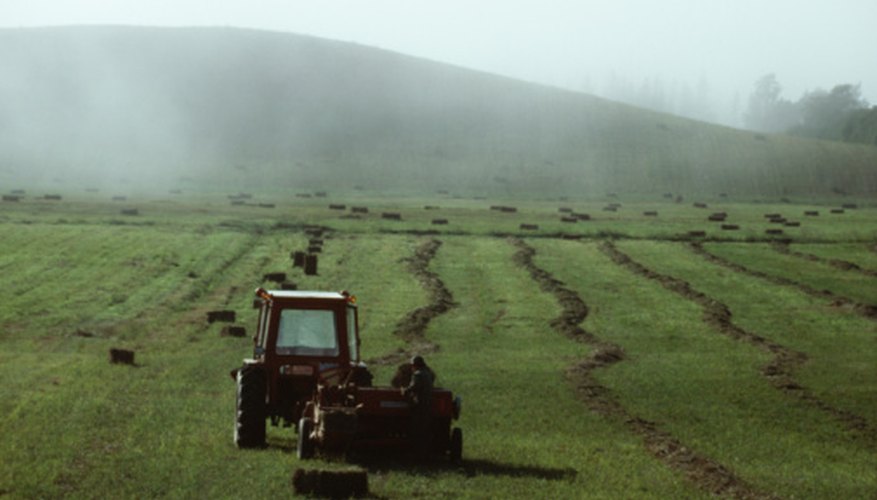
Your Massey Ferguson tractor is designed for operation at very slow speeds, for extended periods of time. Because the cooling system is specifically designed to handle this type of continual load, it is uncommon for the tractor to experience overheating. An overheating condition must be addressed and repaired, as it can cause irreparable damage to the engine and transmission.
Insufficient Coolant Level
A coolant level which is too low will quickly lead to overheating. It will also allow air to enter the cooling system; the trapped air cannot cool the internal engine surfaces and it will create hot spots or air bubbles throughout the cooling system.
Faulty Thermostat
A thermostat that does not open properly will keep the hot coolant in the engine, not allowing it to flow to the radiator where it is cooled. A thermostat should always be installed with its spring toward the engine. A thermostat that is installed upside down will cause overheating.
Damaged Water Pump
The water pump is responsible for moving the coolant from the lower radiator hose, up through the engine and out the top radiator hose. If the water pump is damaged, the coolant will just sit in the engine and quickly overheat. Water pumps often leak coolant when they are experiencing failure.
Weak Lower Radiator Hose
The lower radiator hose is under a constant internal vacuum as the water pump pulls the coolant through it. These lower hoses have an internal spring which keeps them from collapsing under use. Over time the spring can break down and allow the hose to collapse, restricting coolant flow. Occasionally, on used Massey Ferguson tractors, the lower radiator hose has been replaced with a hose that does not have this internal spring. This hose should be discarded and replaced with the correct one.
Improperly Tensioned Fan Belt
A fan belt that is loose, or otherwise damaged will allow the fan to stop turning under load. This will severely limit the amount of cooling air that flows through the radiator. Depending upon the age of your tractor, it may no longer have a radiator shroud. Generally, older tractors will either not have a shroud or will have an abbreviated one. A full shroud, such as found on new tractors, will make a non turning fan hard to spot. Listen for a squealing or squeaky belt, which would indicate belt slippage.
References
Resources
Writer Bio
Gary Proulx has been writing since 1980. He specializes in automotive technology and gasoline and diesel design. Proulx has had multiple articles published on various websites. He is also an archery expert who writes about the ins and outs of archery as a sport.



